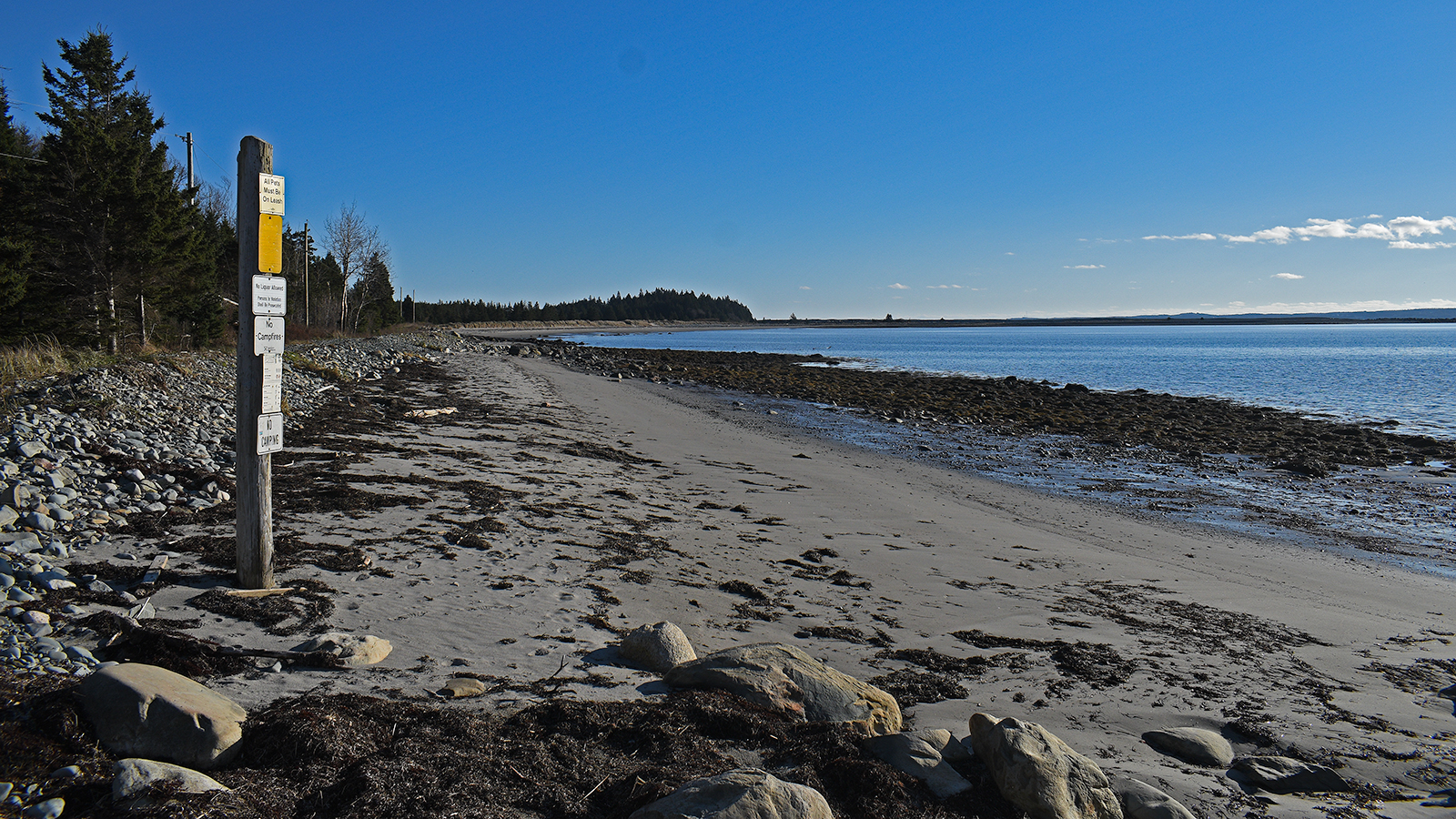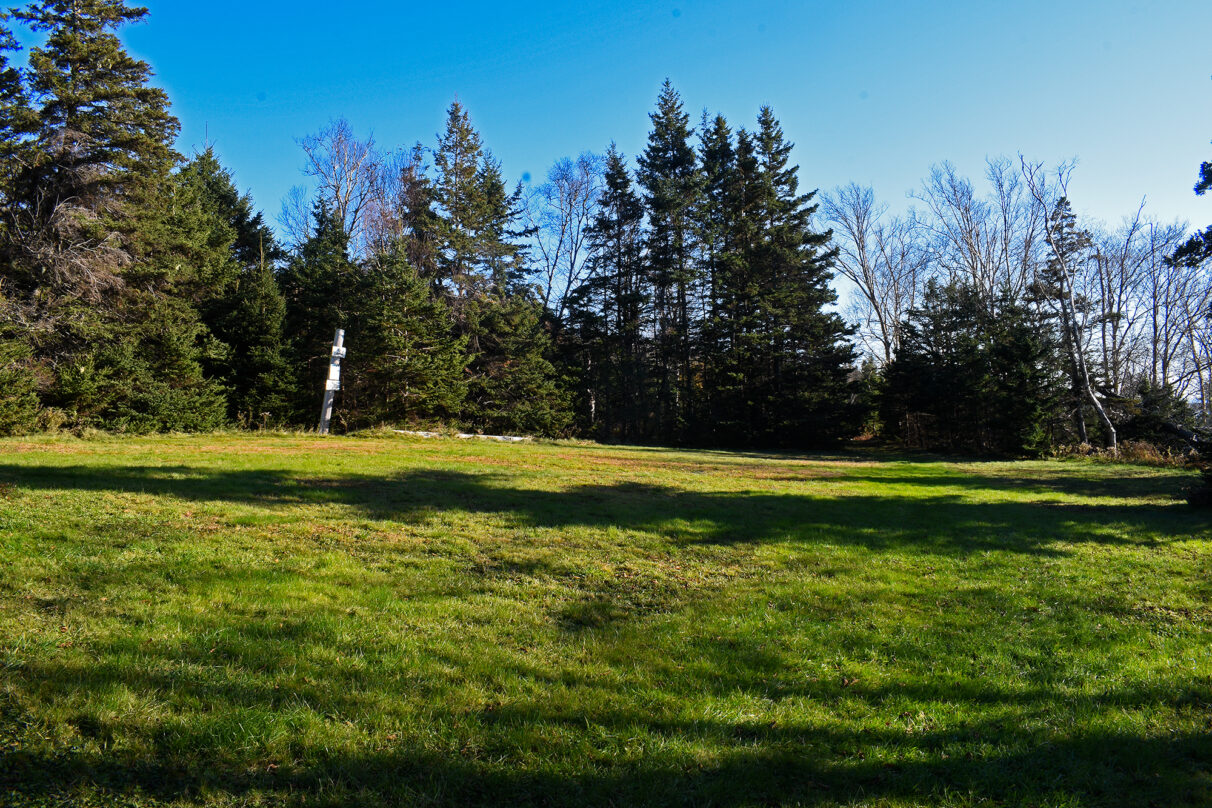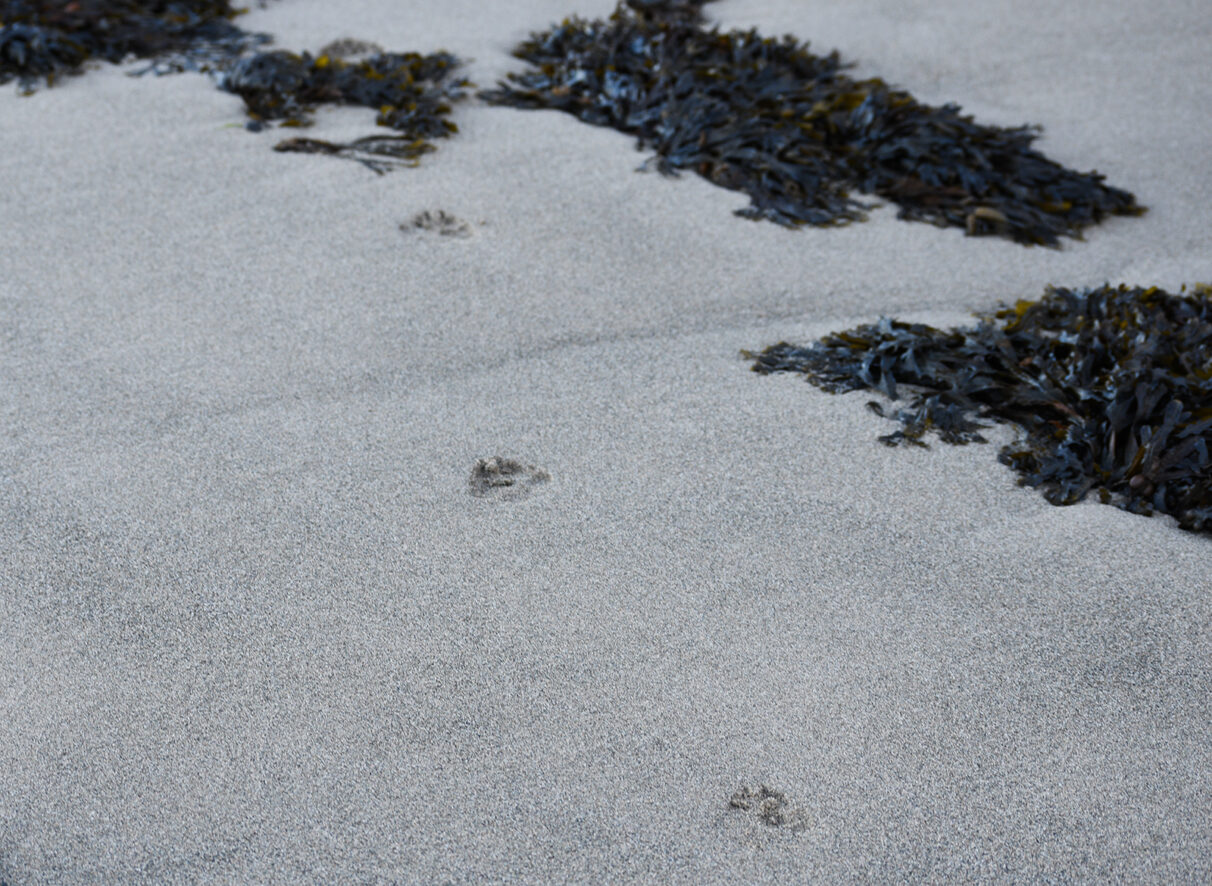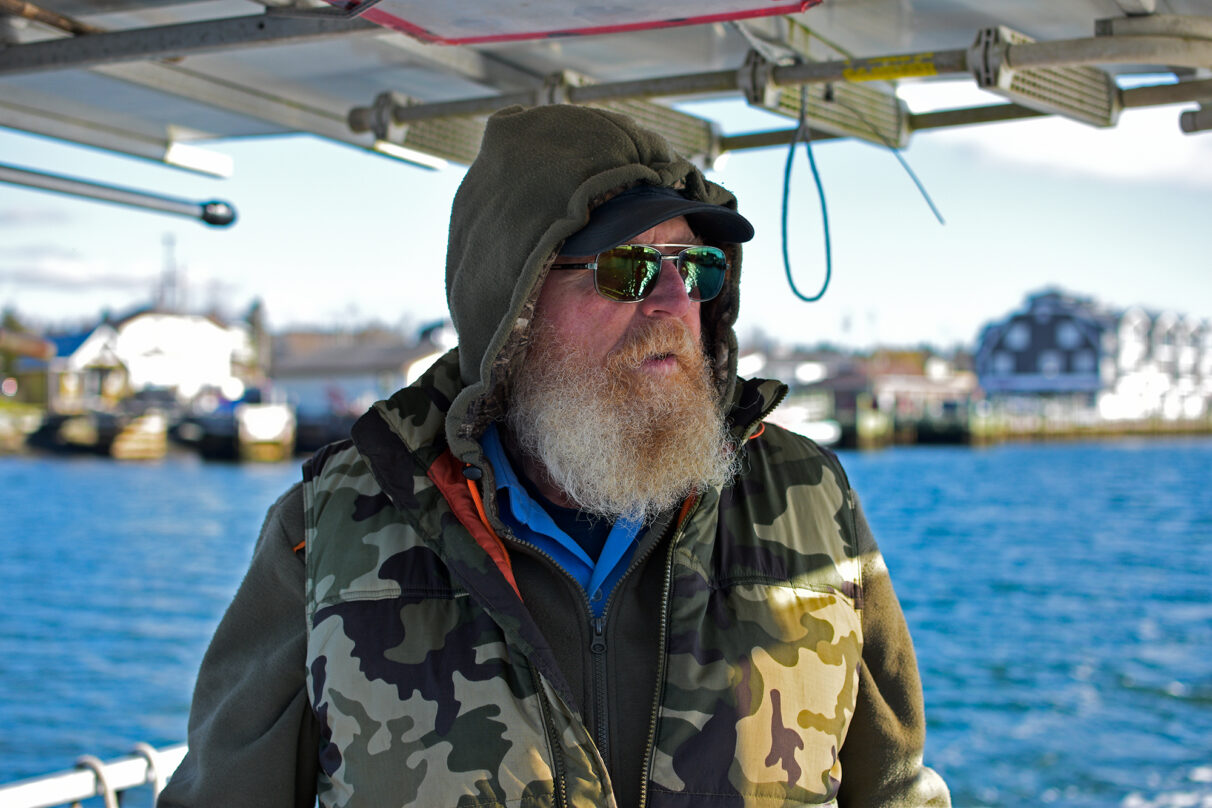Pandemic era camping ban on McNabs Island still in place
Parks Nova Scotia designates the island as exclusively for day-use purposes.

caption
A "no camping sign" greets visitors at the Garrison pier landing at McNabs Island in Halifax, Nova Scotia on Nov. 13, 2023.Over the summer, Halifax resident Nick Rodriguez, 29, thought it would a good idea to go camping on McNabs island.
“It’s a historic part of Nova Scotia … It’s supposed to be a very naturally beautiful park … Who wouldn’t want to camp there?” said Rodriguez.
After calling a ferryboat operator to inquire about getting there he found out he couldn’t stay on the island overnight.
It has been 18 months since Nova Scotia lifted its COVID-19 restrictions and the Department of Natural Resources (DNR) lifted camping bans from all its sanctioned camping sites – except for on McNabs. The ban, meant to enforce social distancing measures, is still in place on the island.
Before the pandemic there was only one official camping site, a small lawn by the McNabs Island Teahouse, near Garrison Pier.
Tour boat operator Steven Taylor says DNR told him “the property was not big enough to be able to keep people apart, according to the COVID restrictions.”

caption
The former Teahouse campsite on McNabs Island in Halifax Harbour.Taylor says he believes the province determined the property was not big enough to keep people sufficiently separated under COVID-19 restrictions. Taylor, who owns and operates the tour boat company Taylor Made Tours, says he still hasn’t been given a clear answer as to why.
“Then after COVID restrictions lifted, they decided just not to lift it … and anytime anyone asks, they say it’s COVID restrictions,” he said.
Catherine McCarthy, president of Friends of McNabs Island Society, says she has also been left in the dark.
She said her group expected camping would resume once COVID restrictions were eased, “but it never did.”
“The government says that McNabs Island is a ‘day-use’ park, which it isn’t, according to the management plan,” she said.
When contacted for an interview the department responded with an emailed statement.
“Management plans serve as guiding documents for our parks. The plan for McNabs is nearly 20 years old and not all aspects that it envisioned were viable. We manage McNabs as a natural environment day-use park,” the statement reads.
McNabs has a rich history. Mi’kmaq seasonal camps can be traced as far back as 350 AD, according to the park’s management plan. In the later half of 19th century the island was home for 50 residents, had a popular fairground and newly built Fort McNabs.
In more recent decades, McNabs has been used as a park, which led to the 1974 designation of the island as a regional park. There has been little development since. The only amenities are hiking trails, outhouses and a few structures intended for visitors.
The consequences
McCarthy says the ban affects youth groups such as sea cadets, scouts and pathfinders who have traditionally camped on the island.
“It limits their ability to use the island. And the island is such an amazing outdoor classroom,” she said.
Three ferryboat operators interviewed for this story said they had each experienced a reduction in revenue since camping was banned.
“It affects my business in that I never really ran my business this year because there really is no business,” Taylor said.
Ferry operator David Backman of North West Arm Boat Tours, said 20-35 per cent of his traffic was people who intended to spend the night. “So, it definitely was a bit of a financial blow to our service,” he said.
For Rodriguez, and anyone else like him who does not own a car or have a drivers licence, the ban reduces the options for wilderness camping accessible by public transit.
Concerns
Backman says while he hasn’t heard directly from DNR, he has heard the province is concerned with potential liability on the island. He says there is no adequate emergency plan for McNabs.
“How would you get an injured person out of the middle of the island?” he said.
He also says there has been growing concern about the potential for forest fires on the island.
“You could essentially just lose the entire island in one go. And there would be nothing anybody could do about it,” he said. “I’m thinking that’s what I’ve been told, unofficially. That’s what was behind their decision,” he said.
Taylor stopped taking campers to McNabs years ago, citing its lack of adequate infrastructure and management. He says there are many issues that make accommodating campers on McNabs difficult.
“Most times when I took people over to do rough camping, and I would explain to them there’s absolutely no fires at the provincial park and you leave it like you found it or better,” he said.
“I would go over the next day after I would do my pickups. And I would go walk the sites that they’re on and I would always find garbage and firepits. And most people they get on back on my boat smelled like smoke,” he said.
Taylor also mentioned the growing risk of coyote encounters on the island. “The last few years it was infested, “he said. “I didn’t feel safe taking people over there because it was no culling or no nothing,” he said.

caption
Coyote tracks appear in beach sand at McNabs Island on Nov. 13.Ferry operator Mike Tilly has also noticed an increase in coyotes. “Five or six, seven years ago now they came back with a vengeance as the hybrid varieties, and we’ve had three or four close encounters of the undesirable kind between hikers, and campers,” he said.
Tilly said that he pleaded with the province to do something about the coyotes after hearing about one incident where a camper was approached by three large coyotes.
“Finally, after like two years, they gradually come over and put up some signs,” he said.

caption
Mike Tilley piloting his ferry boat to McNabs Island in Halifax. Tilley is the owner and operator of the McNabs Island ferry and frequently makes trips to the island.But while the ferryboat operators struggle with the camping legislation and issues, that doesn’t mean everyone obeys the rules. With little presence on the island the province there isn’t much in the way to stop clandestine camping.
“The young folks come in there with boats set up camping and beer bottle smashing contests…what’s to stop it? There’s absolutely no comprehensive security structure whatsoever,” he said Tilly.
“I see people that go down to Eastern Passage on the metro and the buses with a folded-up plastic inflatable dingy from Canadian Tire. They walk out over McCormick’s beach Provincial Park to the nearest point between Eastern Passage and Lawlor’s Island [and] inflate their dinghy… When they finish camping, come back, go back to the passage, in their inflatable, deflate it, roll it up, get back on the bus and, and go back up wherever they came from.”
About the author
Giancarlo Cininni
Giancarlo Cininni is completing his fourth year of the BJH program. He has experience reporting in Brazil and Canada. When he is not staring...
